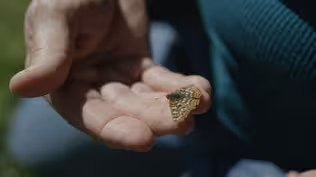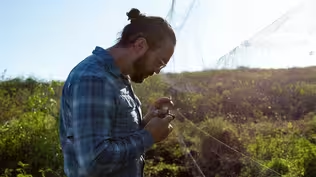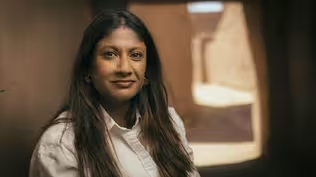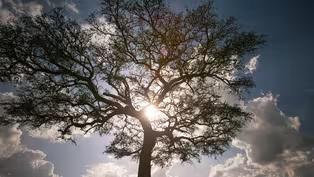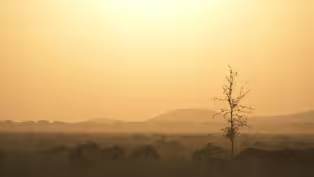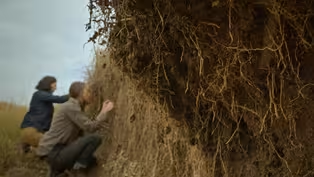
A Herd of Buffalo Are Returned to the Fort Peck Reservation
Clip: Episode 5 | 5m 45sVideo has Closed Captions
A momentous occasion as a new Buffalo herd are returned to the Fort Peck Reservation.
Jonny Bearcub Stiffarm and others from the Assiniboine and Sioux Tribes on the Fort Peck Reservation come together to celebrate a momentous occasion. As all the way from Yellowstone National Park a new herd of Buffalo are returned to their land.
Problems playing video? | Closed Captioning Feedback
Problems playing video? | Closed Captioning Feedback

A Herd of Buffalo Are Returned to the Fort Peck Reservation
Clip: Episode 5 | 5m 45sVideo has Closed Captions
Jonny Bearcub Stiffarm and others from the Assiniboine and Sioux Tribes on the Fort Peck Reservation come together to celebrate a momentous occasion. As all the way from Yellowstone National Park a new herd of Buffalo are returned to their land.
Problems playing video? | Closed Captioning Feedback
How to Watch Evolution Earth
Evolution Earth is available to stream on pbs.org and the free PBS App, available on iPhone, Apple TV, Android TV, Android smartphones, Amazon Fire TV, Amazon Fire Tablet, Roku, Samsung Smart TV, and Vizio.
Buy Now
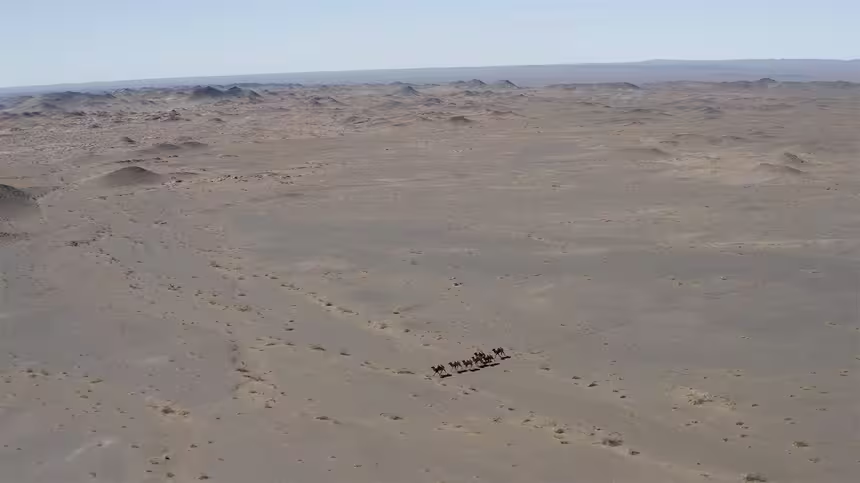
Evolution Earth
Traveling to the far corners of the world, we discover the extraordinary ways animals are adapting to our rapidly changing planet. We witness nature’s remarkable resilience, as our perception of evolution and its potential is forever transformed. Read these interviews with experts to learn more.Providing Support for PBS.org
Learn Moreabout PBS online sponsorship[Shane] If you want to make a big difference, you need bigger animals.
[drumming, man singing in indigenous language] ♪ [group singing] Here on the Fort Peck Reservation, the Sioux and Assiniboine tribes have a bold initiative.
[singing continuing] ♪ [bison grunting] ♪ [woman] The buffalo is our keystone animal here on the prairie, and not only that, but they are also a central figure within our American Indian spirituality and our culture.
[Shane] Bison, or buffalo as they're known in many Native American communities, have vanished from these plains.
[woman] Our last buffalo that we slaughtered for food was around 1885.
That was the last buffalo.
[singing continuing] [bison grunting] [Shane] Now this is the culmination of years of tireless campaigning by the likes of Jonny Bearcub Stiffarm.
She wants to see the bison back on the prairie.
[Jonny] It is a very emotional time.
♪ The "Buffalo Song" is a thank you song.
It's like a prayer song.
We sing it to welcome them back home.
We sing it to let them know how important they are to us and what it means to us to have them here.
It's a sacred song to us, and it's a joyful song.
[Shane] And there's good reason to be joyful.
It's taken all of Jonny's skills as an attorney and the full force of a whole lot of people to arrange this ambitious program.
♪ [Jonny] We had to convince both the state legislature and also Yellowstone Park to be willing to allow Fort Peck to take bison for their last phase of quarantine.
♪ So it's really a lot of work, a lot of patience, but once you have dreams, you can slowly set goals, and they can be accomplished.
[singing ends] ♪ [Shane] Over the last few days, they've been taking delivery of bison from Yellowstone.
This will be the largest herd ever to be released here.
It's a momentous occasion for everyone.
[Jonny] We've had about 4 or 5, 6 generations who had never seen a buffalo.
This is the homeland of their ancestors that walked and roamed the prairie, and they're one of the most import things to our future.
[indistinct chatter] ♪ [Shane] The time has finally come.
♪ I can see them right now walking out.
♪ Oh, lookit.
Now they're all over there.
You can barely see them.
They're going into the fog.
[hoofbeats pounding] [Jonny] In the last couple of hundred years, we have forgotten that we are one part of this huge web of life.
Everything is tied one to the other, and we as humans play our part in it.
[Shane] The community hopes to revive this ghost habitat, restoring it to its full potential.
[Jonny] And today in a modern world, our young people need to realize that the buffalo are everything to us once again.
To be able to leave a place like that for our people and our tribe and for the future, is one of the legacies that I want to leave, to know that I was a part of this, of bringing them home.
♪ [bison grunting] We as a tribal people, we, too, almost went extinct just like the buffalo.
I wonder if they thought: "We're home, we're home, we're back home again!"
[Shane] Finally, we are all recognizing what this community has known all along.
Video has Closed Captions
Preview: Ep5 | 30s | Forgotten and overlooked, grasslands could hold the key to our planet’s survival. (30s)
A Growing Number of Wildebeest In the Serengeti
Video has Closed Captions
Clip: Ep5 | 3m 16s | Wildebeest numbers rose after eradicating rinderpest. The Serengeti ecosystem rebounded. (3m 16s)
Scientists Look to Soil for Answers on Climate Change
Video has Closed Captions
Clip: Ep5 | 3m 7s | Plants are reacting to our changing climate so scientists are looking to soil for answers. (3m 7s)
Providing Support for PBS.org
Learn Moreabout PBS online sponsorship
- Science and Nature

Explore scientific discoveries on television's most acclaimed science documentary series.

- Science and Nature

Capturing the splendor of the natural world, from the African plains to the Antarctic ice.












Support for PBS provided by:
